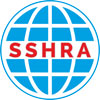
![]()
![]() Submitted By:
Submitted By:
Chen Yin Kuo
Department of Design and Marketing, Tung Fang Design University, Kaohsiung, Taiwan
Different from literature studying the bi-variable relation between business strategy and accounting conservatism as well as tax aggressiveness, this research provides original ideas exploring the relation among business strategy and accounting conservatism through tax aggressiveness. Using the Taiwan data including high-technology and traditional industries, our results indicate that first, prospector companies are more tax aggressive, and are more accounting conservative than defender ones. Secondly, the positive effect of business strategy on accounting conservatism holds through increasing tax aggressiveness (reducing tax payment), implying prospector companies with more tax aggressiveness are more accounting conservatism than defender ones with less tax aggressiveness. Thirdly, the positive effect of strategy on conservatism through increasing tax aggressiveness in high-tech firms is stronger than that in traditional ones. This implies that compared to traditional firms, high-technology firms can more strengthen this positive effect through tax aggressiveness. Fourthly, this paper highlights the role of tax aggressiveness in driving association between business strategy and conservative accounting. Finally, our results are analogous to Higgins et al. (2015) and Hsieh et al. (2019)’s findings of U.S. sample companies, implying that some characteristics of Taiwan companies (e.g., access to capital market, tax deductibility of investment in R&D) appear to be similar to particularities of U.S. firms. This paper provides the evidence on a
developing country (Taiwan) for investors and portfolio managers.
Keywords: Accounting conservatism, tax aggressiveness, prospector, defender, ambiguity
_________________________________________________________________
Disclaimer: Any opinions and views expressed in this submission are the opinions and views of the person who has submitted the article, and are not the views of or endorsed by the Social Science and Humanities Research Association (SSHRA). The accuracy of the content should not be relied upon and should be independently verified with primary sources of information. The person submitting the article does not necessarily be the author of the article. The Social Science and Humanities Research Association (SSHRA) shall not be liable for any losses, actions, claims, proceedings, demands, costs, expenses, damages, and other liabilities whatsoever or howsoever caused arising directly or indirectly in connection with, about, or arising out of the use of the content. For any issues or any reporting, write an email to convener@eurasiaresearch.info
___________________________________________________________________





